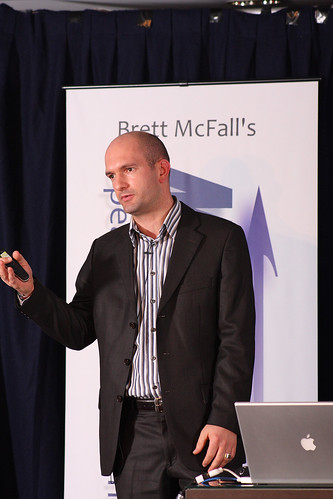ANAHEIM, Calif. — Money problems and marital troubles were being investigated as possible motives in a couple's murder-suicide and the critical wounding of their 3-year-old son, police said.
The boy, who hid behind a trash can in the backyard for more than 12 hours before he was rescued Monday, remained in critical but stable condition, recovering from at least three bullet wounds to his hip, shoulder and torso, Sgt. Rick Martinez said,
The boy's father, Wayne Zickefoose, 51, shot his 39-year-old wife Herminia Zickefoose Sunday night and tried to kill his two sons, police said. The 3-year-old was trapped in a corner of the backyard. A shot aimed at his 5-year-old brother missed. The boy was inside the house, and the shot was fired through an open doorway, Martinez said.
The family had money troubles and their home was in foreclosure, police said.
The home was purchased in 2001 with help from a loan backed by the U.S. Department of Veterans Affairs, according to records obtained by The Orange County Register.
In 2007, the couple borrowed $462,000 from Countrywide Home Loans and began missing mortgage payments on that loan last year. The bank sent a notice in March that the home could be sold at public auction on April 1. At the time, interest and other charges added to the main loan had pushed the debt on the mortgage to nearly $500,000, the newspaper reported.
Civil court records also show that a woman identified in one case as Hermie G. Zickefoose and in another as Herminia Zickefoose had amassed more than $26,000 in debt on four credit cards, according to the Register.
The shooting was discovered Monday when a co-worker of Wayne Zickefoose stopped by because he had failed to show up for work at an auto body shop.
The 5-year-old boy came to the door and told the co-worker his parents had been shot. The co-worker's wife, who was waiting in a car, called 911, Martinez said.
And another also relevant to the "foreclosure anxiety" case of Faisal Shahzad:
Fitzgerald: "Nut cases" and learning from experience
Jihad Watch Board Vice President Hugh Fitzgerald discusses a case of a non-Muslim Westerner learning from experience -- and ponders why such cases are so rare among Western dhimmis.
On NPR recently I heard the mellifluous Robert Siegel -- so mellifluous that he punches above his weight, and one is disinclined to pluck out his idiocies because he is well-spoken -- describe a friend of his who had had relatives, or his own friends, die in the World Trade Center Attacks. That friend, hitherto an opponent of capital punishment, had described to Siegel his own new-found willingness not merely to contemplate, but to wish with his own hands to execute, the death penalty on Moussaoui, Osama Bin Laden, and the others he connected to that attack.
So, Siegel's friend turns out to be a former death-penalty opponent who begins to see the matter differently because of his close ties to the victims of murder. He is one more of those souls who have a limited imagination, and who must endure experiences himself in order to learn from them; anything that might be learned, through the experiences of others, recorded and accessible to others, will not do it. The imaginative sympathy, a faculty once encouraged by literature and the study of history, is merely vestigial in him. But still, at least he was able, this friend, to arrive at some home-truths, while there are some who not only lack the wit to learn from the experience of others (as found in works of history and, often, of literature) but even lack the wit to learn from their own experience. For there are now many who continue to interpret away, in ways that prove most comforting to them, even the evidence of their own senses.
Siegel goes on to tell us that his friend describes Moussaoui as a "nut case." That, of course, is nonsense. Had Siegel's friend, had Siegel himself, had others at NPR, taken it upon themselves -- and a certain leisure is required for this task -- to study Islam and jihad and to think clearly about how such belief-systems can operate, none of them would think Moussaoui was anything but sane. Here one must not think of the local etiolated church service, but rather of the kind of indoctrination given to those admitted to the Army of True Communists (in the early days), or True Nazis (at any time).
Moussaoui is not a "nut case." He is a perfectly rational and devout believer in what the Qur'an, and the Sunna, tell him. And he is not unusual in his understanding of what Qur'an and Sunna stand for, of the hostility, even murderous hostility, those immutable texts teach Muslims to feel toward all Infidels. Unless Robert Siegel is willing to study those texts, those of Qur'an and Hadith, and the life of Muhammad, he has no business assuming, and passing on that assumption to unwary listeners, that Moussaoui must, of course, be a "nut case." For there are tens or even hundreds of millions of Believers who, like Moussaoui, divide the world uncompromisingly between Believer and Infidel, between the Domain of Islam, Dar al-Islam, and the Domain of War, or Dar al-Harb, and are perfectly aware of the duty imposed on them to push back the boundaries of Dar al-Harb until, ultimately, the rule of Islam is established everywhere. This is not a fabrication of perfervid mad-dog Infidel brains. It has been studied, at great length, by a great many Western scholars -- the scholars who lived and wrote and published in an earlier, less frightened and less inhibited age. Many of these scholars are represented in the anthology "The Legacy of Jihad." Islam has not changed. What has changed, since 1973, is the wherewithal that Islamic peoples and polities have acquired, including the nearly ten trillion dollars in OPEC oil revenues, and the other instruments of Jihad, including the foot-soldiers, the millions of Muslims who, in roughtly the same period, were admitted into, and allowed to settle deep within, the countries of Western Europe -- that is, within the Lands of the Infidels, behind enemy lines, as Muslims (but not those innocent Infidels) regard them.
There are millions who may not do as Moussaoui (who grew up in France) has done, but who support what he did, and who understand perfectly what prompted it. And it was not a matter of his being a "nut case." It is Moussaoui, and Osama bin Laden, and all the members of Jaish-e-Muhammad, and Laskar Jihad, and Hamas, and Hezbollah, and Al Qaeda, and As Sayyaf, and a thousand other groups, and millions who belong to no groups, who have the Qur'an and the Hadith and the example of Muhammad on their side. Unless and until a great many more people cease to soothe themselves with the comforting idea that all these people are merely "nut cases," and begin to look at, and to study with comprehension the Qur'an, and also -- this should never be overlooked -- the still more telling Hadith, they will continue to be surprised by a steady stream of such “nut cases.”
Mere reading of the Qur'an will not be enough. In both French and English it is far softer in its meaning than the original. And the reader may not be aware that Islamic tradition has resolved contradictory statements using the interpretative device of "naskh" or abrogation, resolving them always and everywhere in favor of the harsher verses, with the softer ones being cancelled.
And even reading and rereading the Qur'an and the most authoritative collections of the Hadith, and then studying the most salient aspects of the life of Muhammad, uswa hasana, al-insan al-kamil, that Perfect Man, will not be enough. It takes time for it all to sink in -- and to imagine, to begin to comprehend, the effect it has on the minds of hundreds of millions, and even how the effect of filial piety, or civilizational pride, can cause otherwise intelligent people born into Islam to accept the monstrousness of it all, and to defend it and apologize for it in front of questioning and skeptical Infidels.
But let us pretend that Moussaoui, and tens of millions of others, are merely "nut cases." Suppose that were true. Suppose, that is, that only "nut cases" would take the passages of Islam and seek to act on them as Moussaoui did. And suppose, further, that the only thing we Infidels had to worry about were acts of terrorism, and not the slow transformation of our own societies (beginning with the sudden self-imposed limits on the practice of freedom of speech, by almost the entire American press, and now even by that supposed total iconoclast and brave disrespecter of all pieties, Comedy Central).
What then? How many "nut cases" are there? Well, the problem is that in any society, millions and millions of people at one time or another fall into depressions. In the United States, more than 15 million people at any one time are said to be severely depressed. When this happens to Infidels, they can blame all sorts of things: their parents, their children, their siblings, Amerika, The System, The Man, the Republicans, the Democrats, immigration, affirmative action, lack of affirmative action, crooked financial analysts, Wall Street speculators, Chinese and Indian competition, Fate, the stars in their alignment, their cholesterol level, their serotonin level -- even, at times, themselves.
What happens when a Muslim finds himself in disarray? You are Muhammad Atta, and things are not working out in Hamburg, where you set off to study urban planning, and you are not the great success you were supposed to be, and the Western world is so baffling, so confusing. You are Raed Albanna, dancing the night away in cocaine-soaked clubs of West Hollywood, and you are piling failure upon failure, for you failed to establish a practice as a lawyer in Jordan, and you need to find a solution more permanent and steady than that offered by that cocaine, those girls, that music by Nine Inch Nails.
When "Mike" Hawash, an Intel engineer with an American wife and three American children, earning $360,000 a year and the respect of his colleagues, turned to Islam and more Islam, and then deeded over his house to his wife, and made plans to fight the Americans in Afghanistan after the Al Qaeda attacks in New York and Washington, was he a "nut case"? Or was he someone who, in his recent return to Islam, was only reflecting his need for Islam and more Islam as a stay against confusion and depression? And if the Answer for Muslims, even those who are not especially observant, and who seem to be thoroughly Westernized and to have been the recipients of the best the West has to offer, is Islam and more Islam, then the Western world, the world of Infidels, owes it to itself to protect its own legacy, and to scrutinize closely and carefully control the immigration of those who, in moments of the kind of doubt or depression that come upon all of us, will always and everywhere turn, or return, to Islam.
[Posted by Hugh on April 16, 2006]
astorinoOpinion, News, Analysis, Videos and Polls.
The conservative movement is now wallowing in the kind of unapologetic race-baiting that mainstream American politics hasn't seen in decades, if not generations.
PBS once again leads the News and Documentary Emmy nominations announced today with 37 noms, followed by CBS with 31 noms, including 16 for venerable newsmagazine 60 Minutes, the most nominated program by a mile; HBO (20); ...








